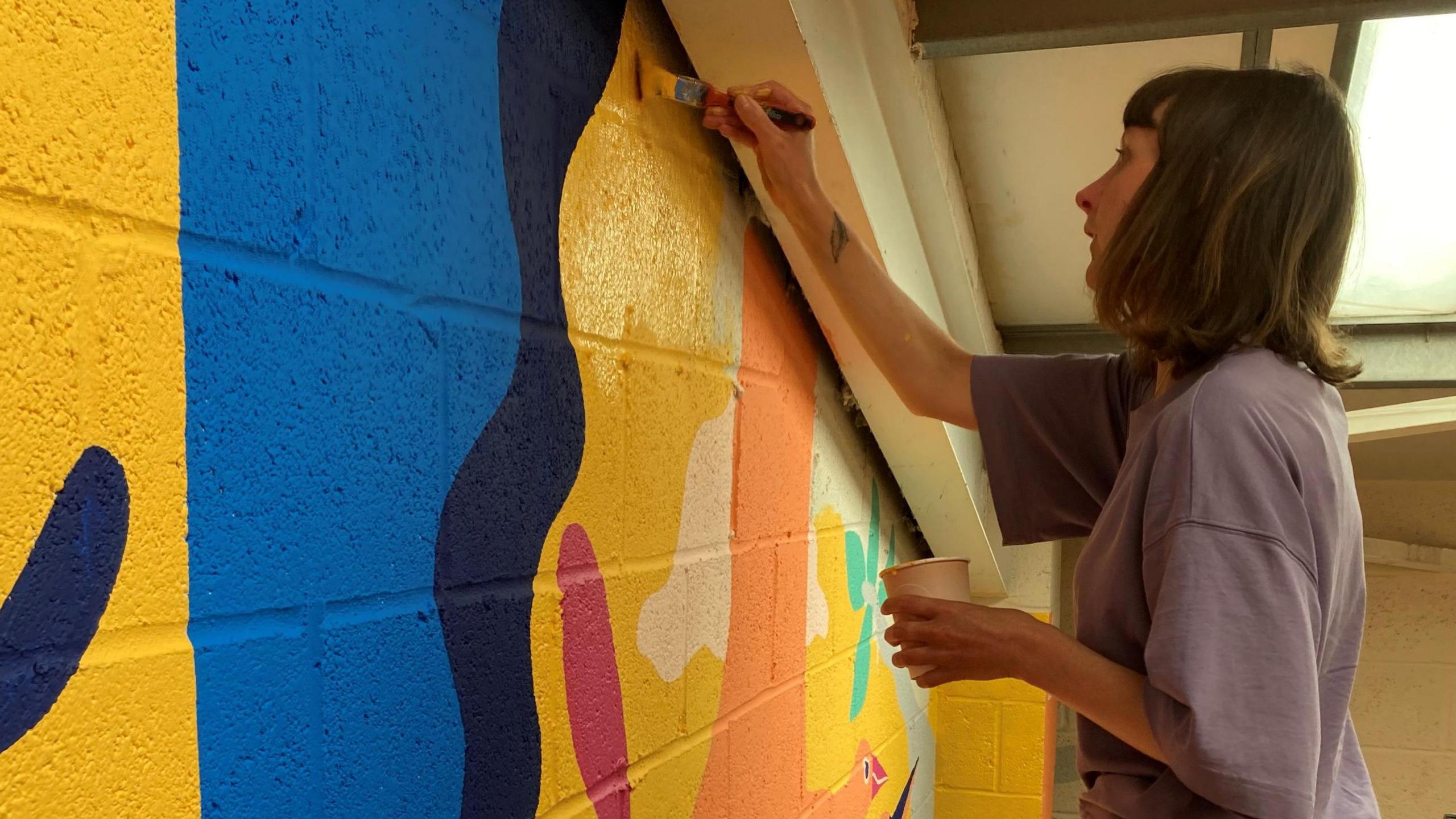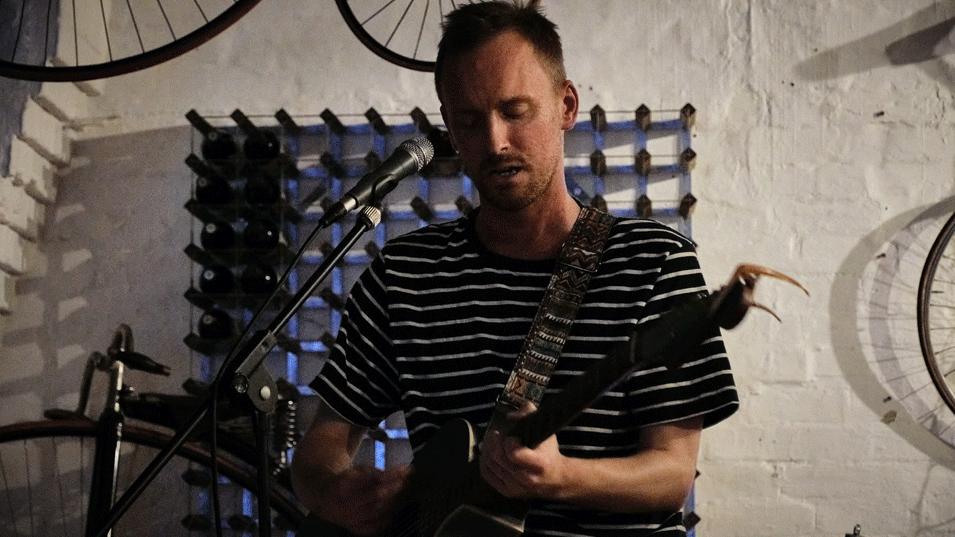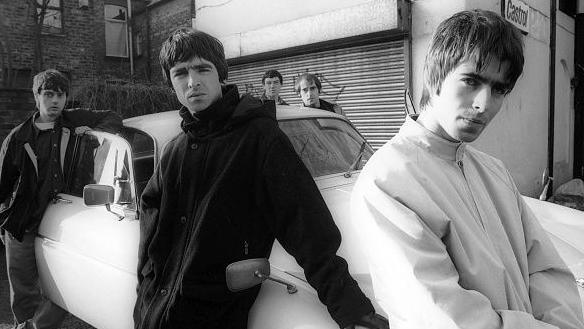The band whose nursery rhymes won't drive you mad

Father and teacher Ollie Thomas had been "driven mad" by "nasty" versions of nursery rhymes
- Published
"They’re really lovely songs, a lot of them. I just haven’t heard them in a lovely way before."
When singer-songwriter Ollie Thomas started teaching early years children, he was disappointed at the nursery rhyme options available online.
Ollie was "driven mad" by "twangy", "nasty" and "relentlessly unpleasant versions" of these traditional ditties and dreamt of reimagining them with "longevity and playability" in mind, for long-suffering teachers and parents alike.
The result was Humble Beans.
Ollie's musical story begins in Oxford, and his band called ute, who made waves on the scene and were BBC Introducing in Oxfordshire's Act of the Year back in 2010.
He later struck out solo as Salvation Bill, but it was when Ollie became a teacher, and subsequently a father, that he wanted to solve the nursery rhyme conundrum.
"When my daughter was toddling around she was enjoying the guitar," he explains.
"I was trying to play Chick Chick Chicken with her, but because I play in the same tuning as I used to play [in my bands], as it's an open tuning it doesn’t sound traditional.
"The chords had their own character... it took on its own flavour. It ended up sounding idiosyncratic."
Allow YouTube content?
This article contains content provided by Google YouTube. We ask for your permission before anything is loaded, as they may be using cookies and other technologies. You may want to read Google’s cookie policy, external and privacy policy, external before accepting. To view this content choose ‘accept and continue’.
He recruited his school friend and ute-bandmate Michael Chilcott on bass, as well as local illustrator and animator Sarah Hoyle, who had designed artwork for gig posters and album covers.
Early Humble Beans influences included Hook, Line and Singer - a book by musician and BBC presenter Cerys Matthews - which included nursery rhymes notations and histories, and Imogen Heap's The Happy Song, which was developed alongside scientists to develop the perfect track for babies.
Ollie's story also mirrors that of fellow Oxfordian musician Nick Cope, the Candyskins guitarist who found his true calling as a writer of songs for children, culminating in his own CBeebies show.
"We spoke about Nick a lot at the beginning," Ollie says. "When I show my daughter Nick Cope I don’t feel like I’m showing her bad telly, it’s enriching in some way."

Ollie (left) and Michael Chilcott were part of acclaimed indie rock band ute
"So much kids music is really rubbish," Michael suggests.
"You end up playing music you want to listen to, and they don’t really like it, so it’s about finding a middle ground.
"Chick Chick Chicken got stuck in my head - not in a bad way - and the animation was really cool, and I realised there was something we could do with this.
"From my perspective it was how can I muscle my way in?"
Sarah says she wanted the visual aspect of Humble Beans to move away "from those garish bright colours you see in a lot of kids’ videos".
"Something that looked a little bit more handmade with textures," she adds. "More muted, more earthy."
She describes the process as "really nice" and "organic".
"I really love the idea of getting kids excited about music… having these characters and making imaginary worlds. Bringing that into the teaching side would be really cool."

Illustrator and animator Sarah Hoyle joined the band to help visualise their ideas
Humble Beans have made lesson plans with videos and animations, and are working on a live band element, as they seek to expand the concept.
Their recently-released album We Are the Humble Beans, external includes Pop! Goes the Weasel, Incy Wincy Spider, and several other singalong classics.
"Everyone’s watching stuff on their phones and TV and using it to show things to their children," Ollie says.
"Nursery rhymes are important. We can pass them on like folk music, through something appealing."
Get in touch
Do you have a story BBC Oxfordshire should cover?
You can follow BBC Oxfordshire on Facebook, external, X (Twitter), external, or Instagram, external.
Related topics
Related links
- Published26 November 2024

- Published20 November 2024

- Published30 August 2024
